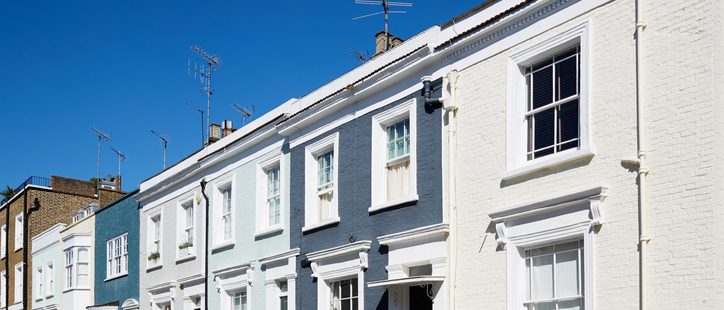Our Opinion: 2022
Falling UK property prices

The Wall Street Journal has reported that Britain “is about to sustain the biggest shock to its housing market” since 2008. Average interest rates for new two- and five-year fixed mortgages have topped 6% for the first time in over a decade and have more than doubled over the past year. Many households are heading for a nasty shock: of the 8.4 million mortgages in Britain, fixed interest rates expire on about 2.4 million of them in the second half of this year and through next year.
Mortgage rates had already been climbing this year, but then surged in the wake of the quickly cancelled mini-budget in the UK. The average rate on a two-year fixed rate rose from 4.74% on 23 September to 6.53% the following week. Over 40% of mortgage products were pulled from the market amid the chaos. Those rises have slowed since Jeremy Hunt took over as the Chancellor of the Exchequer. Yet the damage was already done. Even after the new Chancellor’s announcements, banks continued to increase the cost of borrowing. Rates look unlikely to return to September’s levels.
More expensive mortgages mean that Britain’s home buyers need to downgrade their expectations. A year ago a purchaser making an £800 monthly payment could hope to secure a £200,000 five-year fixed mortgage towards the cost of a £270,000 property (assuming a £70,000 deposit). At current interest rates the same buyer could only borrow £130,000 to buy a £200,000 home. About 35% of property hunters buy in cash and are not directly affected, but even these people may rely on someone else in the transaction chain who does need a loan.
Predictions of property doom have been wrong before. After a brief wobble at the start of lockdown in 2020, a boom followed that added 20% to prices. Yet with living costs also soaring it’s hard to see how the property market isn’t heading for more challenging times. Mortgage rates above 6% might not feel burdensome to those who remember the 1980s and 1990s. But property is also more expensive relative to average incomes in 2022 than it was a few decades ago. An interest rate of 6.4% today would feel like an interest rate of 13.7% in 1989. A 20% fall in prices would plunge 5% of mortgage holders nationwide and 10% in London into negative equity – where the value of a person’s loan exceeds the value of the property. This makes moving or re-mortgaging close to impossible. For reference, average house prices fell by about 20% in the 1990s and by 15% between 2008 and 2009.
For the time being, the housing market is flatlining rather than crashing. Halifax reports that prices fell 0.1% in September on the month and have been “largely flat” since June, although they are still 9.9% higher than they were a year ago. It is possible, though, that house prices in Britain are already falling – but lags in collecting the data mean that we cannot yet see the impact. Respondents to a Royal Institution of Chartered Surveyors survey report that “buyer inquiries have fallen for the last five months”. That has been a leading indicator of a weaker market before. In 2007, when agents were as negative as they are now, house price falls were recorded five months later.
UK house prices have been enjoying a long boom. The Office for National Statistics has recorded an increase every month since May 2012. Over that period, house prices have risen 66%, and 30% in real terms. But rising interest rates mean a price reversal is inevitable as more expensive credit lowers affordability and chokes off demand. The monthly cost to service an 80% loan-to-value mortgage on the average priced house as a share of median full-time disposable income has historically been under 40%.With mortgage rates at 6%, that figure is now about 60%. If the base rate peaks at 5% then we expect nominal house prices to fall by 12% between now and mid- 2024. Should mortgage rates stay stuck at 6% for a prolonged period then a house price fall of 25% would be needed to bring affordability down to the long-term average.
House price falls generate a negative ‘wealth effect’ making homeowners feel poorer and prompting them to reduce their spending. The resulting economic hit could be worth £35bn over the next three years, or 1.4% of the UK’s GDP.
A property slump should not devastate the financial system in the way it did
after 2008. Lending standards have been tightened since then, and, because house prices have risen by over 25% since June 2020, it would take a large correction to propel lots of borrowers into negative equity. Recent homebuyers and those in London look to be in the most difficult situation. Repossessions are likely to tick up as the economic backdrop darkens, adding to supply and depressing prices. Yet the bigger effect will be from households reducing their overall spending, to meet pricier mortgage payments. This undermines demand – not just in the housing market – but in the wider economy too.
28th October 2022
